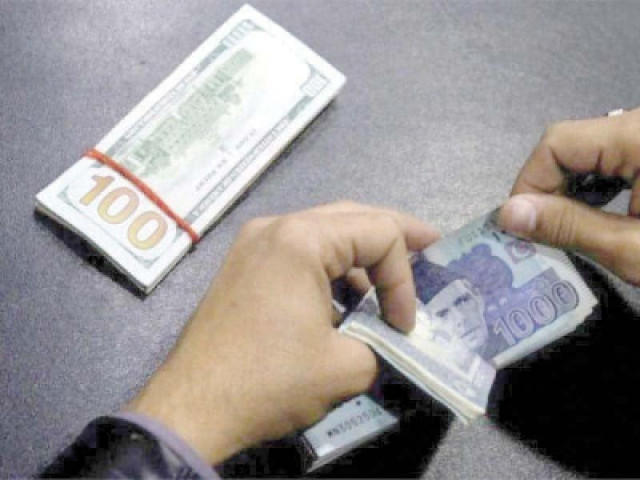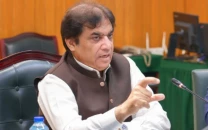‘Pakistan in financial emergency’
Business leaders urge SBP, govt to restructure market policy, strengthen currency

The consistent depreciation of the rupee is deepening the economic crisis in the country said the Pakistan Business Forum (PBF), as its leaders called upon the State Bank of Pakistan (SBP) to take necessary measures to stop market speculation and resolve the issue.
In a statement released on Monday, PBF CEO, Ahmad Jawad said, “Pakistan’s economy continues to slump despite resumption of the much-awaited International Monetary Fund’s (IMF) Programme. Finance Minister Ishaq Dar must announce a clear policy on the rupee to ease the pain of traders and to save the industries.”
“High inflation, unemployment and low profitability continue to plague the business community and despite that the government has withdrawn its electricity concession given to exporters and is projected to increase the levy on petrol and diesel to Rs50 per litre by January 2023. Adding to their miseries, the government is also considering imposing GST – all negative indicators for the country’s economy,” he added.
“Even bond and currency markets, which had shown more confidence in Pakistan after the IMF deal, are pricing in high once again over concerns of the country defaulting on its foreign debt,” said Jawad.
“Since the end of August, the yields on some of the government’s international bonds have jumped by a third, while the currency is one of the worst performing in Asia,” reads the statement.
“Is it not shameful for Pakistan that we rejoice in repaying the $1 billion Sukuk, but don’t take any steps to save the dollars we are wasting. Using daylight will save $3.5 billion,” claimed the PBF CEO.
“We still have foreign debt of $130 billion and $73 billion due in three years. Our deficit for next three years is a minimum of $20 to $30 billion. Additionally, super inflation is killing the poor. This is a financial emergency,” lamented Jawad.
Speaking to the Express Tribune, Optimus Capital’s Head of Research Muhammad Arsalan Siddiqui said, “Currently, the major issue is to arrange external funding to meet foreign outflows at a time when the SBP reserves are around $7 billion with an import cover of only 1.1 months against the minimum required standard of three months.”
The foreign commercial loans were targeted at $7.7 billion for FY 2023, while the government was only able to receive $0.2 billion during July-October 2022, he said, adding that “The Chinese deposit rollover of $4 billion is still pending.”
“Due to the prevailing high yields, the international Sukuk and Eurobond market cannot be tapped, which was earlier targeted at $2 billion,” Siddiqui maintained.
“Lastly, the IMF’s Ninth review is still pending, which is very critical for the disbursement of $1 billion and will subsequently simplify acquiring additional funding from other multilateral and bilateral lenders. For now, however, these uncertainties are building immense pressure on the FX reserves and currency,” he explained.
The PBF CEO further noted that tax revenues, industrial production and other targets set by the government have been shredded. “All the figures have gone haywire,” he lamented.
“Despite all this, PBF does believe that the real effective exchange rate (REER) of the dollar against the rupee is less than Rs200 for a dollar, and that the current depreciation cycle is a direct result of speculative trading, lack of regulatory oversight and mismanagement of the forex market,” said Jawad.
Arif Habib Limited Head of Research Tahir Abbas told The Express Tribune that “Since the IMF’s Ninth review is still pending, and negotiations are ongoing, the currency regime should be market determined. The SBP should only intervene if abnormal behaviour is observed in the market.”
“Moreover, the government needs to focus on the inflow of dollars, particularly via exports and remittances to minimise the current account deficit,” urged Abbas.
Karachi SITE Industrial Area based Industrialist Muhammad Raza told The Express Tribune that his family has been doing business from the past 50 years, “And never has my father seen this level of instability and fluctuation in the money market, or this much instability in the political sphere.”
“Even in my 27 years of experience, I have never witnessed such deterioration. How can anyone inject capital into such an uncertain market,” asked Raza, adding that, “We are very worried.”
PBF Vice President Jahanara Wattoo also called upon the government to rescue the economy as “there is a limit that businesses can absorb in the form of growing costs and added taxation pressure.”
“Pakistan has serious, long-term structural economic problems, and the cost for this year’s devastating floods will be in the tens of billions of dollars. Rebuilding the destroyed infrastructure will be impossible for a country that is already heavily indebted, desperate for an IMF bailout and begging for financial assistance from the world community, Wattoo added.
Korangi Association of Trade and Industry (KATI) President Farazur Rehman suggested the government consult with the business community to find a direction towards better economic solutions together.
Published in The Express Tribune, December 6th, 2022.
Like Business on Facebook, follow @TribuneBiz on Twitter to stay informed and join in the conversation.


















COMMENTS
Comments are moderated and generally will be posted if they are on-topic and not abusive.
For more information, please see our Comments FAQ